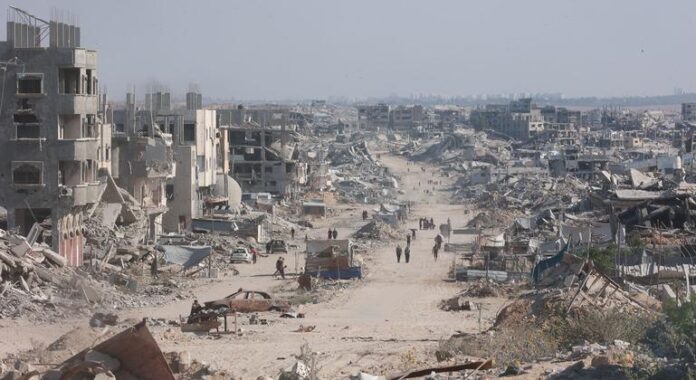According to the International Organization for Migration (IOM), returns took place between November 2024 and September 2025, as families returned to Khartoum from across Sudan, seeking to rebuild their lives after months of displacement.
“The scale of the return to Khartoum is both a sign of resilience and a warning,said Ugochi Daniels, IOM Deputy Director General of Operations, who recently visited the country.
“I met people returning to a town still scarred by conflict, where homes are damaged and basic services barely function.»
The agency said Khartoum still hosts some 3.77 million displaced people, meaning current returns represent only a quarter of the state’s uprooted people.
An estimated 2.7 million more people could return home if conditions improve.
In Sudan, 2.6 million return movements were recorded during the same period, including 523,844 people crossing national borders – mainly from Egypt, South Sudan and Libya.
Insulated stability pockets
Despite isolated pockets of stability, IOM warned that the humanitarian situation remained dire.
“Everywhere in Sudan, cholera, dengue and malaria are spreadingmaking it even more urgent to invest in clean water, healthcare and other essential services so people can truly start anew,” Ms Daniels said.
Many returnees live in damaged homes or collective centers, with little access to clean water, health care or protection. Just over half live in rural areas and almost half are children.
© UNICEF/Proscovia Nakibuuka
Clashes and insecurity in Sudan continue to force people to flee their homes in search of safety.
Thousands of people trapped in El Fasher
The crisis has been particularly severe in El Fasher, the besieged capital of North Darfur, where more than a million people have fled since the start of the war between government military forces and rival RSF militias in April 2023.
Thousands of people remain trapped by indiscriminate bombings, sexual violence and targeted ethnic attacks, and there are reports of civilians resorting to animal food to survive.
Recent IOM field reports indicate that more than 13,000 people were newly displaced in North Darfur and West Kordofan between October 15 and 20, as insecurity intensifies. UN teams are monitoring the situation and assisting affected communities.
Displaced families from the town of Tawila received help Monday after walking for days to escape violence in El Fasher. However, access remains difficult.
“We and our partners continue to scale up our response efforts where access allows,» declared Farhan Haq, deputy spokesperson for the UN, during a press briefing in New York.
Silencing the guns
Sudan’s civil war pits the Sudanese Armed Forces (SAF) against the once-allied Rapid Support Forces (RSF) who turned guns on each other in April 2023. The fighting has displaced more than ten million people, destroyed large parts of Khartoum and triggered one of the world’s worst humanitarian crises.
IOM said it continues to work with partners to provide life-saving assistance and strengthen data collection to guide relief efforts. He reiterated the call to the warring parties to “silence the guns, end the suffering and find lasting solutions for the Sudanese people.”
“The Sudanese people have demonstrated remarkable strength and a deep desire to rebuild their lives once peace is restored,“, the agency said. “Their determination is remarkable, but life remains incredibly fragile.»











